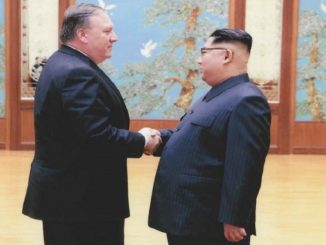
The United States-China trade war saw the biggest round of tariffs yet on Monday, resulting in further escalation.
Namely, the Trump administration imposed another 10 percent tariffs on $200 billion of Chinese goods, including thousands of products ranging from food seasonings to industrial machinery parts. The latest batch of duties was immediately followed by retaliatory taxes of 5 to 10 percent on $60 billion of U.S. goods, including meat, clothes, and chemicals.
The moves only intensified the already serious trade conflict between the world’s two largest economies. According to Aninda Mitra, senior sovereign analyst at BNY Mellon Investment Management, this is the “’it’ll get worse before it gets better’ phase.”
The U.S. tariffs imposed so far apply to about half the amount of goods China sells to the United States, or $250 billion of goods. The latest batch of tariffs affects thousands of products U.S. consumers buy such as furniture and electronics.
The duties are meant by President Donald Trump to punish Beijing for what he believes are unfair trade practices, including intellectual property theft. China has denied such accusations, maintaining the U.S. was a bully. In response, the country has fired back with tariffs on American goods worth more than $110 billion.
On Monday, the Chinese government further accused the Trump administration of making “false accusations” and seeking to “impose its own interests on China through extreme pressure.”
The trade war is expected to intensify further with the increase in the latest tariffs from 10% to 25% at the end of 2018. Beijing has not yet disclosed how it would respond to that. President Trump has likewise threatened to impose tariffs on the rest of China’s annual exports to the U.S., which amount to roughly $506 billion.
China imports significantly fewer products from the United States but it may retaliate in other manners, experts warn. Beijing could charge higher tariffs, restrict Chinese citizens’ travel to the United States for study and tourism or reduce taxes for companies affected by the tariffs.




Be the first to comment